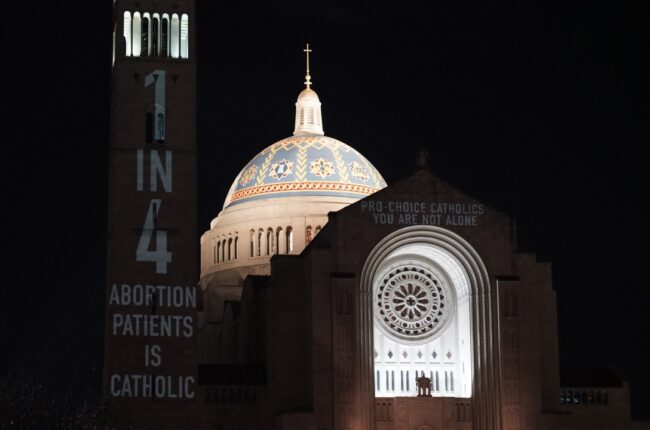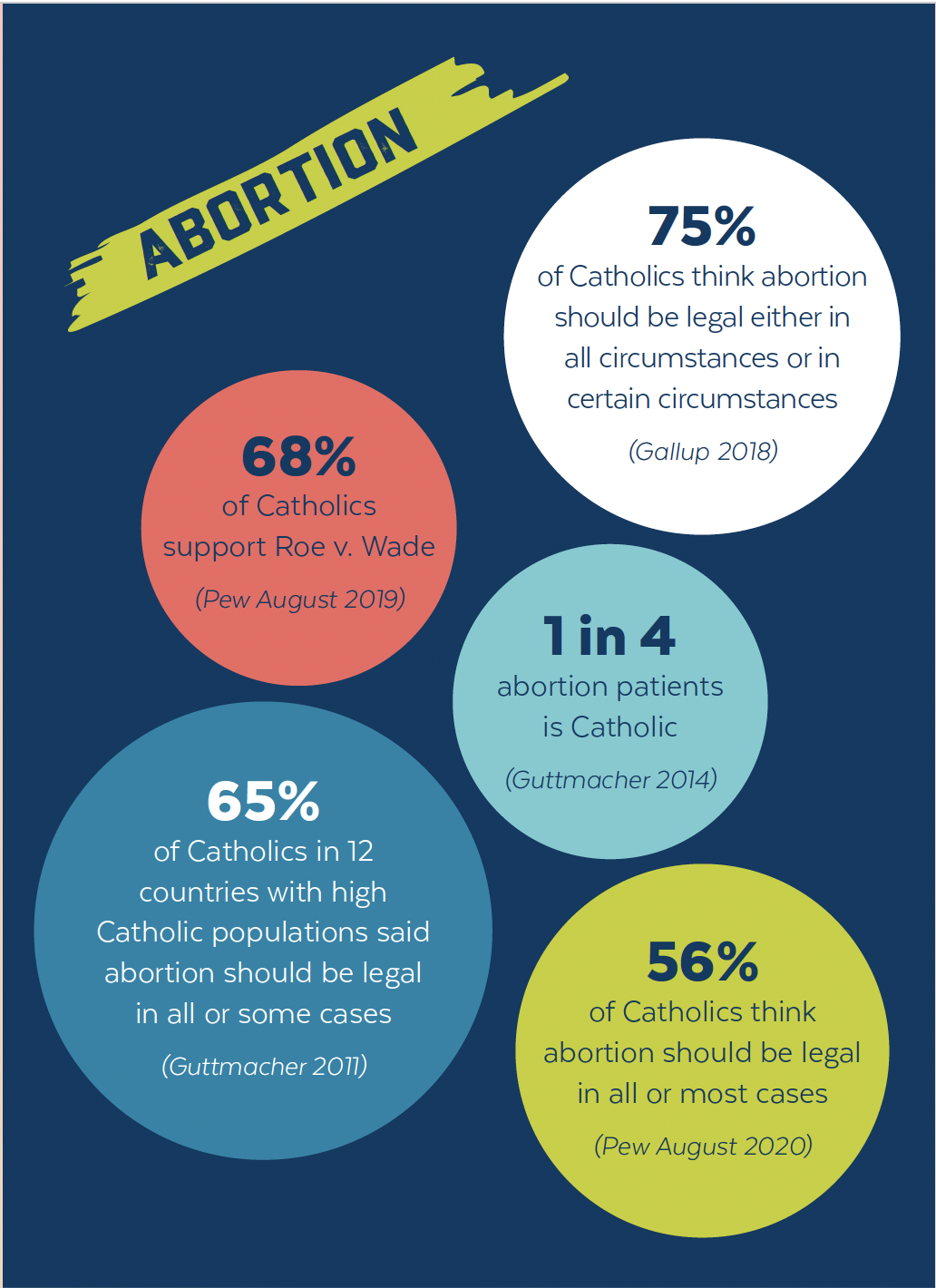Abolishing the Pro-Life/Pro-Choice Binary

“Choice” is one of the most powerful animating ideas in the abortion debate. In the “choice” framework, women have the capacity to decide their future. They defy men, refuse to bear children, and live without constraint. The “choice” model has terrified conservative Christians and propelled a ferocious anti-choice campaign to make abortion illegal from the moment of conception. This fantasy world in which people effectively, efficiently, and enthusiastically control their fertility has even enchanted progressives and liberals. What an achievement! After all, there is nothing more American than rugged individuals’ power to chart their life trajectory into freedom, security, and control. However, “choice” is not the animating factor for the everyday people who need abortions. The idea that people exercise perfect control over their reproductive lives is the greatest fiction of all.
In the U.S., 1 in 4 women will have an abortion before they turn 45. For them, moral questions about abortion are not theoretical. However, very few studies have focused on women and pregnant people’s moral decision-making in situations of pregnancy termination. We are part of a research team that includes Jewish, Muslim, Catholic, and white and Black Protestant scholars. Together we are completing Phase I of a study of religiously identified women having abortions in North Carolina. Beginning in summer 2022, Phase II* will expand our study across the United States to collect the stories of 500 women.
As we have listened to abortion stories, we have heard the voice of pragmatism — of women who have looked thoughtfully at their circumstances and determined that continuing the pregnancy was not an option. There is a casualness to the language of “choice” that implies opportunity, possibility, even delight. This casualness does not reflect the seriousness with which most make the decision to end a pregnancy.
In the U.S., public and scholarly abortion discourse is obstructed by arguments over the abstract question of whether abortion is right or wrong. But this is the wrong question to ask. When faced with the decision of whether to have an abortion, people do not start with hypothetical questions of whether abortion is moral. Instead, they ask, “What should I do?” By using the wrong moral framework, public debates demand that women and pregnant people justify their abortion decisions, creating a hostile environment of stigma and shame. These public disputes fail to recognize the concrete moral questions that pregnant women and people ask when deciding whether to end or continue their pregnancy.
"When faced with the decision of whether to have an abortion, people do not start with hypothetical questions of whether abortion is moral. Instead, they ask, 'What should I do?'"
.
Click to TweetNumerous studies have focused on documenting the reasons that women have abortions as well as their experiences of stigma. However, very little research has examined how women understand their abortion decisions within the context of their lives as women of faith. No one has studied how someone’s religious identity shapes their decision to terminate a pregnancy or how religiously identified women understand the meaning and value of their reproductive decisions to end a pregnancy. In the current political and cultural context, the voices and perspectives of religiously identified women who have abortions must be documented and elevated in the public discourse.

If many religiously identified women have abortions, including the 24% of abortion patients who are Catholic, why aren’t their stories part of the public discourse? Based on our research thus far, we have some sense: There is little space within that public discourse on abortion to share a different story, to offer a different perspective that centers the lived experience of pregnant women and people who are making decisions in the midst of the complex forces impacting their lives. The binary “pro-choice” or “pro-life” debate leaves little room for the full picture. As a result, these women retreat to silence. In his 2010 book “The Church and Abortion: A Catholic Dissent,” George D. O’Brien makes an observation that continues to ring true: “The Church’s position on abortion has damaged politics, moral discourse, and the inner dialogue that should mark the community of Christ. Silence is not acceptable. Ultimately, the retreat to silence is caused by the threat of Vatican condemnation for any deviation from the party line.” This condemnation has extended well beyond the Catholic church. It has even impacted members of this research team who work in Catholic institutions and do not feel safe attaching their names to this article.
Furthermore, anti-abortion religious doctrinal opinions — which are the minority viewpoint — disproportionately influence U.S. abortion discourse. Holding particular power are evangelical Christian leaders and the Roman Catholic hierarchy, whose opinions are not widely accepted by most Catholics in the U.S. Most religious people in the U.S. support the legality of abortion. In 2019, the Public Religion Research Institute found that the majority of Jews (70%), Muslims (51%), Buddhists (69%), and Hindus (62%) support the legality of abortion in all or most cases. This is also true for the majority of Christians, with white mainline Protestants (59%), Black Protestants (56%), and white Catholics (52%) supporting legal access to abortion. And yet, the public discourse about abortion makes it seem like opposing abortion is the only possible religious opinion.
After almost 50 years of legal access to abortion care, the U.S. Supreme Court has overturned Roe v. Wade, an action that supporters of abortion access believe will threaten the health, safety, and moral agency of the most vulnerable women in our country. In general, middle class, wealthy, and white women will continue to find their way to the medical care they need, while our Black and Brown sisters will bear the brunt of religious extremism. The voices and stories of these women are central to our understanding of the issue of abortion precisely because they are the people most impacted by public policies of abortion. As religious studies scholars, we approach these women as the experts of their own experiences. In a public conversation dominated by right-wing religious arguments against abortion and demeaning and derogatory stereotypes about who has abortions, our research centers women having abortions in order to document their reality and counter the dominant narratives that currently shape public understanding about abortion. By listening to their voices, we seek to bear witness the theologies that guide their lives and to understand the meaning that they are making of their lives and their faith.
We see this important task as consistent with the synodal process happening right now in the Catholic church — a process that calls for listening to all people, not just those who hold clerical offices or leadership positions. And since there are very few, if any, spaces where women’s voices can be heard in relation to their experience of abortion, we believe our study will add greater nuance to the public discourse and elicit greater compassion for those women who we’ve heard say over and over, “I didn’t really have a choice. I had to end my pregnancy.”


